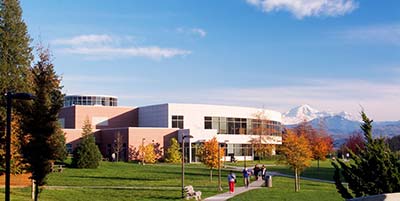Even after the regular nomination period closed, the UFV board of governors is still looking for student interest in the board.
In order to fill the one remaining student position, the nomination period has been extended to March 10. There are two student positions on the board, but only one student was nominated.
The board of governors is the governing body responsible for the university’s fiduciary issues, issues of property, and finance. Positions on the board are held for a one-year term that extends from August 1, 2017 to July 31, 2018.
Andrew Stahl, currently SUS board chair will fill one of the board of governors positions.
UFV’s senate filled all four of its student positions during the regular nomination period. The four senate student positions will be filled by three current SUS members: Senate rep, Ekanki Chawla, faculty of professional studies rep, Sahil Chawla, and vice president internal, Ashmeet Saran. The fourth position will be filled by Dildar Vardi.
The senate is the academic governing body and is responsible for academic affairs and advising the board of governors.
The regular nomination period is from Jan. 30 to Feb. 17.
“What we do is we run expressions of interest in elections in February, so that by the time their term starts in August, they’re already in place,” said Al Wiseman, UFV university secretary.
Incoming board members are also typically invited to the board’s last meeting of the academic year in June to get a feel for the workings of a board meeting.
Some of the tasks that a board member is responsible for include attending regular in camera and public meetings, attending committee meetings, as well as various events representing UFV and the board of governors.
During meetings, student members, like any member of the board, are encouraged to comment and vote on items of business presented at the meetings.
“They’re kind of looked at, from the boards perspective, as a window into the perspectives of students on whatever issues come forwards,” said Wiseman. “It’s students’ best position to actually comment and say, ‘well this is the way we think students see this issue’.”
Board members are also expected to review and know the agenda which is sent out prior to the meeting. The board of governors meets about eight times a year and meetings usually to run about five hours.
Individual committees also meet multiple times a year but meetings tend to be less frequent and not as long.


